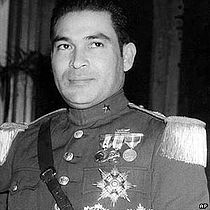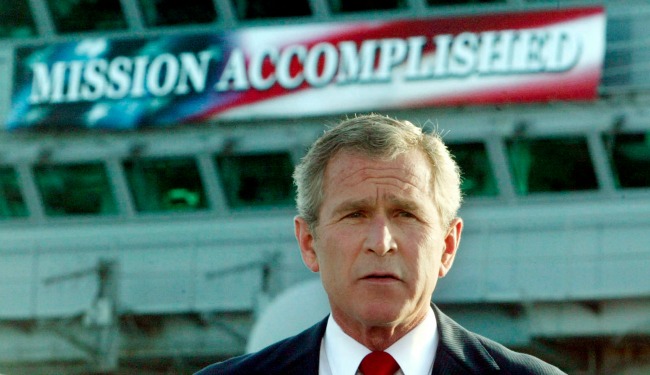Seventy-five years is all I want to live. I want to celebrate my life while I am still in my prime. My daughters and dear friends will continue to try to convince me that I am wrong and can live a valuable life much longer. And I retain the right to change my mind and offer a vigorous and reasoned defense of living as long as possible. That, after all, would mean still being creative after 75.
So wrote Ezekiel J. Emanuel, director of the Clinical Bioethics Department at the U.S. National Institutes of Health and head of the Department of Medical Ethics & Health Policy at the University of Pennsylvania, in the Atlantic magazine of September 17, 2014.
He argues that:
- He will have lived a complete life by then.
- Increased life expectancy has been accompanied by increased disease, accompanied by physical and mental disability.
- If we change our goals to match our ages, we still burden our children and alter their memories of us as decrepit rather than vibrant.
- “But 75 defines a clear point in time: for me, 2032. It removes the fuzziness of trying to live as long as possible.”
He concludes that certain medical tests and interventions that the larger population would consider quite normal should be ruled out after age 65, after age 70, after age 75.
It is a thoughtful and provocative essay that has attracted a lot of attention, presumably to the satisfaction of publisher and author. It could be that he wished to attract an audience, or it could be that as a bioethicist, he wished to begin a national conversation about end-of-life issues, rather than to be taken at face value. I would not question the sincerity of Dr. Emmanuel, nor would I question his education, which surpasses my own. I question his wisdom.
First, his choice of 75 is by his own admission arbitrary. Why not 74 or 76? Why not 79 or 81? Choosing an arbitrary age, or arbitrary criterion for anything, is a logical one-size-fits all or Procrustean standard. Such standards assume a homogeneity of population that does not exist, and Dr. Emmanuel presents counter-examples and outliers himself.
He further claims that a country that achieves life expectancy of 75 for both men and women need no longer concern itself with further life-lengthening efforts. This is a statistical fallacy. He does not state which life expectancy.
Our life expectancies change as we age. Much of the life expectancy quoted is at birth, including the risks of infant mortality. Life expectancy at age 18 is much different. Furthermore, life expectancy at age 70 is considerably higher, as there is a heightened risk of mortality in the fifties and sixties, with those reaching their seventies enjoying a much longer expectancy. On top of that, those are averages that say nothing about the experience of any one individual, and we live life as individuals not as averages, except for those rare individuals with precisely 2.4 children.
Second, when he points to the increase in disability and disease in extended old age, those figures apply to the general population, including the obese we see among us. They may not apply to those who climb Mt. Kilimanjaro in their fifties, as has Dr. Ezekiel.
Third, he is concerned about burdening his children, but he may prove to be a greater burden on his children by refusing available medical interventions than had he accepted them. A person with atrial fibrillation who has a pacemaker is less likely to experience a debilitating stroke than someone who refuses medical treatment. The only difference is that the stroke disability occurs in the person’s seventies rather than their eighties. That doesn’t sound the ethical high road to me.
Fourth, it is ironic that Dr. Ezekiel in pointing out the “spiritual and existential” reasons for his position to be rejected overlooks the religious drive behind his position: the desire for certainty in the face of life’s ambiguity. That drive motivates most religious belief in the same way that desiring to die at a fixed age “removes the fuzziness of trying to live as long as possible.”
Fifth, it could be that as a physician on record as opposing active euthanasia and recognizing that people do have disabilities that radically degrade their quality of life at an increasing rate with age; he is left with the only alternative being a form of very passive self-euthanasia, which he describes in other terms in the essay.
Now, the essay is replete with disclaimers that Dr. Ezekiel is not trying to convince us nor does he think it unethical to conclude otherwise and so forth. In short, he is restricting his conclusion to a population of one that we cannot know as well as he does. If that were truly so, the essay need not be published anywhere but a diary. So, I find the disclaimers to be disingenuous.
At the outset, I challenged Dr. Ezekiel’s wisdom but not his sincerity. I did so on two grounds.
First, in academic research, with which any physician is familiar, it is a cardinal rule to state what you know, what you don’t know, and what should be the next steps. My impression is that Dr. Ezekiel confuses what he knows with what he doesn’t know. Among the things he doesn’t know, not because he is not intelligent and knowledgeable, but because he is not omniscient are:
- What the outcomes of two personal time lines would be, one being the refusal of interventions and the other being the acceptance of interventions.
- What medical advances will occur in the next fifteen years to address some of his concerns about disability accompanying expanded life expectancy.
Have we not all wondered at some time, what if we had married person A instead of person B, what if we had taken job A rather than job B, visited country A rather than country B, and an almost infinite number of similar questions that are summarized in Robert Frost’s The Road Not Taken? And the power of the poem lies in our understanding that we simply cannot see the path that disappears in the underbrush, nor can Dr. Ezekiel.
In the field of economics, everyone becomes familiar with work of Thomas Malthus, who predicted widespread war and famine accompanying population growth. It may still happen, but it has not happened yet because Malthus was unable to take into account the impact of technological advance. The same technological advance that has helped us lengthen our lives by declining infant mortality and more hopeful outcomes to heart disease and cancer may yet address the disabilities accompanying aging. What I know is that at my age (67) I can walk 5 miles easily and 10 miles less easily whereas my parents’ generation could not at my age. I carry two stents in my heart, which have no lengthened my life but improved its quality such that I can climb a hill without feeling faint. Such qualitative improvements from technology should not be overlooked.
Second, the ancient Greeks had a word that survives in our studies of their literature and ours, hubris, an excessive pride or self-confidence. And, to me that is the lack of wisdom in an otherwise well-written, thoughtful essay. We have come a long way as a species. With luck and wisdom that we do not always demonstrate, we will have a long way to go. Part of that wisdom is a certain humility that I found lacking in the essay. Even about ourselves we know less than we pretend to know. A person contemplating his death at 75 does not know he will not be hit by a car at 60 or suffer a heart attack or learn he has pancreatic cancer. By the same token, there are imponderables on the other side of 75 as well, good and bad, desired and feared. A person cannot plan that way, but the humility of admitting those possibilities should come through in this essay.
Many years ago I lived in the backyard converted garage of an older couple in Miami, Florida. They had an old dog. One day, the man about 70 years old was musing about how the dog was arthritic, had trouble walking and could not climb up on his lap, and how perhaps it was time to put him down. It gives me pause and a needed dose of humility in thinking about such things to recall that the dog outlived the man.

 took power in a military coup before the 1952 election.
took power in a military coup before the 1952 election. had died. I looked at her. “What are you so excited about? While we don’t know if he was happy, he had wealth and power and died in his bed at 83? What is there to celebrate?” I feel about the same way regarding Castro.
had died. I looked at her. “What are you so excited about? While we don’t know if he was happy, he had wealth and power and died in his bed at 83? What is there to celebrate?” I feel about the same way regarding Castro. His opening is a counterpoint to hardliners on the island who will want to continue the relationship of the past half century. Whether Obama’s successor will move forward or revert to earlier failed US policies remains to be seen.
His opening is a counterpoint to hardliners on the island who will want to continue the relationship of the past half century. Whether Obama’s successor will move forward or revert to earlier failed US policies remains to be seen.










Recent Comments